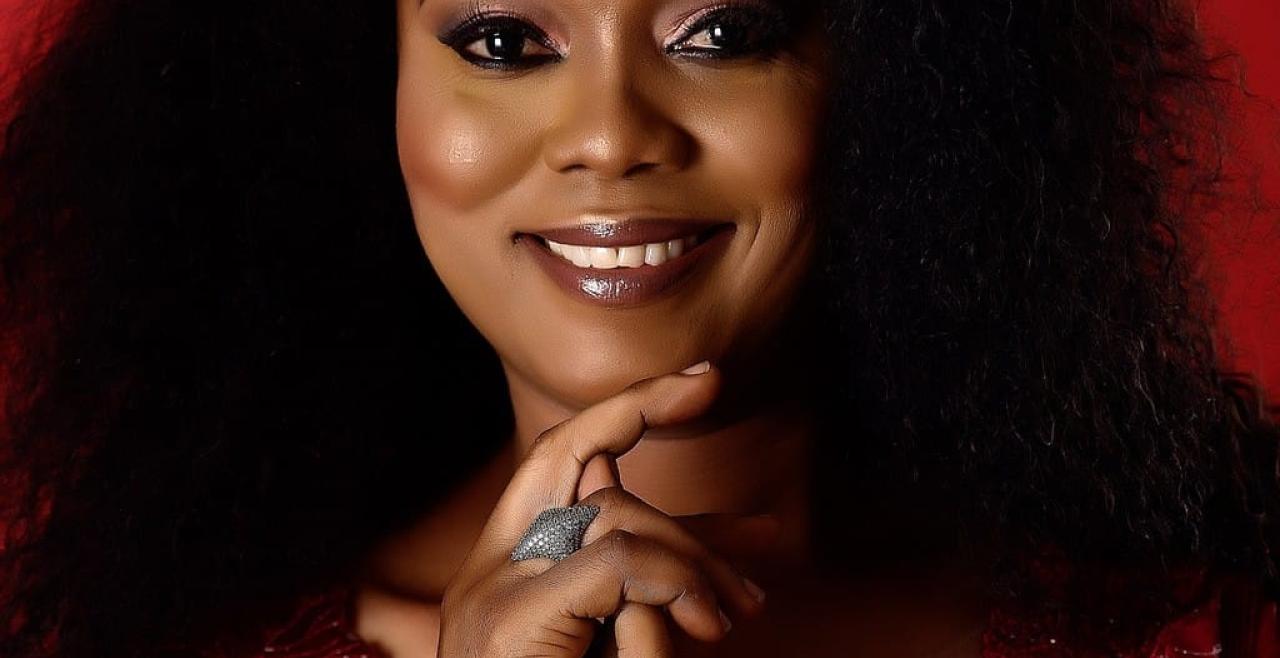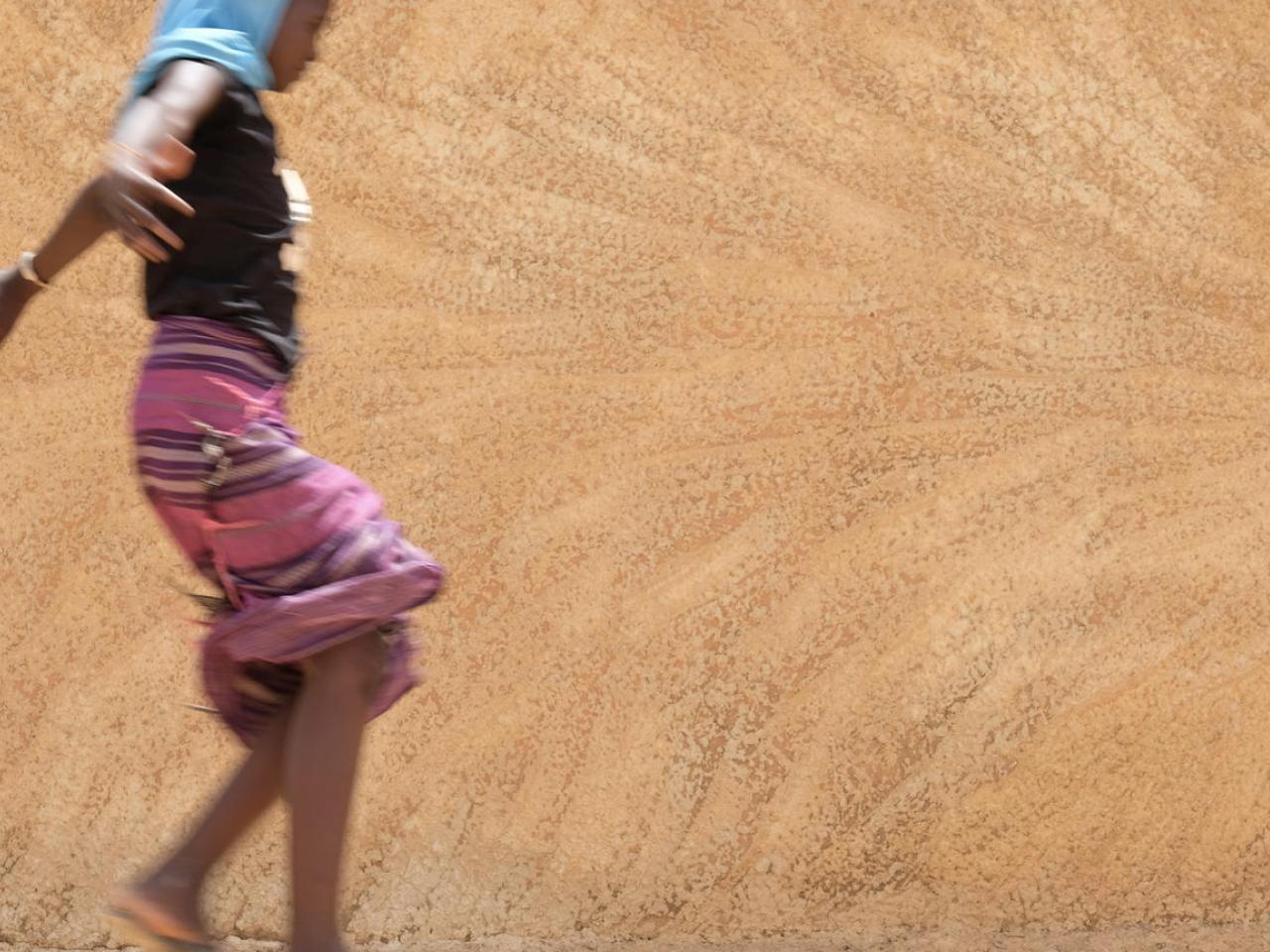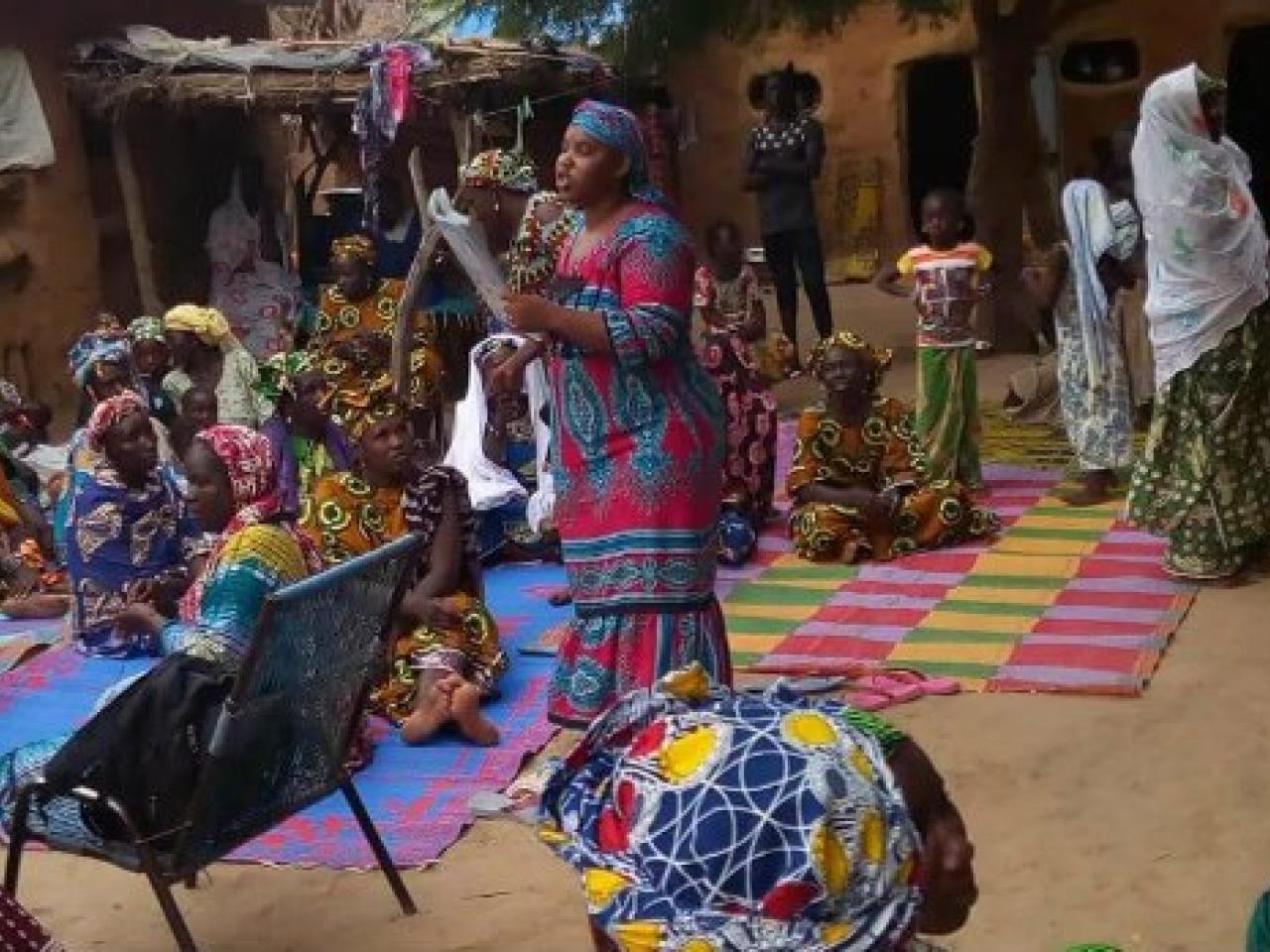The life-long impact of sexual assault: In Nigeria, a survivor speaks out

ABUJA/LAGOS, Nigeria - Fatima Ada Isiaku was only 5 years old when her stepfather began sexually abusing her.
“At the age of 7, the abuse became worse,” Ms Isiaku revealed during a televised town hall on sexual and gender-based violence and Spotlight Initiative’s efforts to address the issue in Nigeria.
“I was a sex slave for complete seven years under my mother’s nose without her knowing that I was being abused.”
“[My stepfather] told me, ‘Your mother is no longer here to protect you'. He continued raping me” - Fatima Ada Isiaku, survivor of violence
It wasn’t until the age of 14 that Ms. Isiaku’s mother finally listened to her, after performing an at-home “virginity test”. When Ms. Isiaku explained that she was being raped by her stepfather, her mother told her to keep quiet and sent her to live at her uncle’s house. Two years later, her mother died and Ms. Isiaku was forced to return home.
“[My stepfather] told me, ‘Your mother is no longer here to protect you’… he continued raping me,” she said.
Ms. Isiaku says the abuse caused her to drop out of school, run away from home and begin drinking. “I was bullied. The stigma, friends abandoned me,” she said. Even today, she faces discrimination stemming from her sexual assault.
Ms. Isaku’s story was a harrowing reminder of the devastating impact of violence against women and girls – what EU Head of Delegation Ketil Karlsen called “the world’s longest lasting pandemic”. Thirty-one per cent of Nigerian women aged 15 - 49 have experienced physical violence according to the 2018 National Demographic and Health Survey, though underreporting means true statistics are likely much higher.
"I stand in solidarity with all the women and children in Nigeria and around the world and say ‘no’ to violence against women and children” - President Muhammadu Buhari
The town hall brought together survivors of violence, civil society representatives, government, police, and representatives from the EU and UN to discuss what needs to be done to end violence against women and girls in the country. It was broadcast live on Channels TV and focused on improving survivor access to justice, the challenges of prosecuting perpetrators of violence, and the adoption of legal frameworks that protect women and girls, as well as highlighting gender-based violence services that are available.
UN Resident Coordinator to Nigeria Edward Kallon spoke about the need for all of society to join the movement to eliminate violence. “It is not a woman’s issue, it is also an issue for men,” he said.
The event closed with a statement from President Muhammadu Buhari, who committed to making ending violence against women a national priority. He also echoed the need for men to be part of the solution.
“I stand in solidarity with all the women and children in Nigeria and around the world and say ‘no’ to violence against women and children,” he said. “I call on all our men and boys to help us in achieving our goal of creating a society that is free from domestic violence, rape and all other forms of violence against women and children.”
In addition to TV reach, more than a million viewers tuned in to watch the discussion via Twitter Live.
Spotlight Initiative is dedicating more than US$43 million to ending violence against women and girls in Nigeria, making it the Initiative’s largest country investment.
Watch highlights from the event below. Watch Ms. Isiaku's testimonial here.
Lead image from Ms Isiaku's Facebook page.



